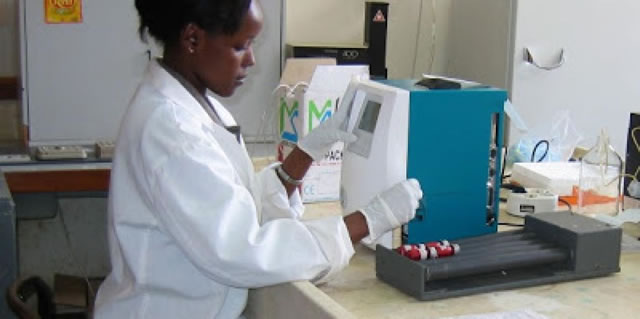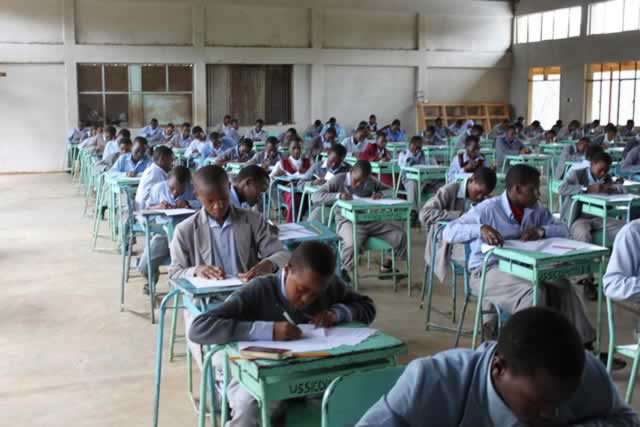The relevance of scientific research

 The Scientific and Research Development Council has had its lows owing to the macro-economic challenges facing the country but it is bouncing back. Sirdc’s chief Professor Robson Mafoti (PM) told Star FM’s Napolen Nyanhi (NN) in an interview of the great revival and the relevance of Sirdc to the country’s scientific development.
The Scientific and Research Development Council has had its lows owing to the macro-economic challenges facing the country but it is bouncing back. Sirdc’s chief Professor Robson Mafoti (PM) told Star FM’s Napolen Nyanhi (NN) in an interview of the great revival and the relevance of Sirdc to the country’s scientific development.
Napoleon Nyanhi: You have headed the country’s premier research and development centre Sirdc for the past 11 years. What would you say are your major achievements in this period?
Professor Robson Mafoti: Let me just say it is not a question of my achievement, it’s the question of the team at Sirdc which I lead. When I joined Sirdc things were beginning to turn sour for the centre because of the sanctions. So we realised to survive, we needed to come up with a way that would generate revenue for the centre. As a consequence of that, we changed our vision. We started our vision with the issue of commercialisation.
Simply put, we reduced to practice everything we did. Let me just say that, out of that activity, we managed to establish a commercial company as a joint venture with the Reserve Bank of Zimbabwe where we were involved in four areas. We were manufacturing tiles. We worked on anti-biotics for cattle and we established a foundry that is making all kinds of items for mining, for agriculture (and) for industry as well. On top of the four Strategic Business Units.
NN: These are SBUs for profit?
PM: Yes
NN: Proper companies turning for the profit.
PM: Absolutely. I can at this point up to the time we dollarised. We had employed over 500 people. Unfortunately when we dollarised we did not have enough capital to continue with business. So of the four only one is still alive, that is the foundry.
We also worked on drought tolerant maize. We call it 113 and this has become a very hot item for the country and I can safely say there are very few varieties of maize that can compete with 113. Apart from the products we also are engaging in industrial support activities. We work with most major companies in this country in various segments of their manufacturing activities. For example we work on process improvement, cutting circle (not clear) so that they can maximise their profitability. We also calibrate their equipment. We have a national meteorology institute which by the way is the third well (not clear) meteorology centre in Southern Africa after South Africa and Mauritius. We do software for development companies environmental (not clear) assessments. This is just to name a few.
NN: You mentioned that when you joined Sirdc the company seemed to be struggling because of the sanctions. How were the sanctions affecting Sirdc?
PM: Well, it starts with the big picture, the state itself. If sanctions are biting at a national level it then means the state does not have enough cash to fund research or any other activity that could lead to reputable development of the economy. So indirectly Sirdc is affected by sanctions.
NN: Prof you have registered quite a number of patents in the United States of America and you also studied in the States partly, taught and worked for a long time there. What are the chances that some of these products would be manufactured in Zimbabwe and how this country would benefit from that?
PM: Well that’s an excellent question. I wish we could start making the products but I tell you the challenges. Most of these patents were developed and executed while I was working for very highly, highly mechanised companies. So the equipment required to produce the products will take quite a bit of capitalisation. It is my wish and desire that some of the companies we have in Zimbabwe could seat down with us and see how we can convert some of these patents and make them beneficiary to the economy of Zimbabwe.
NN: The challenges we seem to have with the country’s scientists is we hear about these scientific breakthroughs, the country is not seeing any tangible benefits from the breakthroughs we are getting from our scientists. What is the problem?
PM: Well I don’t know whether we call them breakthroughs. When we have a scientific breakthrough, it must have commercial relevance. It’s one thing to come up with any idea. An idea that could be novel. It’s another thing to make that idea a commercial success. I would tell you why. If you look at the USA patents office. All the patents coming out are not viable because they don’t have commercial relevance. A good inventor should have any idea that can be reduced to practice; that can translate into money. So when we say someone is a serious inventor we are saying his impacting on the economy of the company or the country. So most of our scientists although they are doing a good work, that work to me is not being carried through to a point when you can say now we are going to make money with the findings.
NN: So would you say it’s an issue of marketing and development?
PM: Marketing and development and simplifying the invention such that it has relevance. Relevance to the economy of Zimbabwe.
NN: One of the areas of specialties at (name) and (name) but we have companies such as Trinidad shutting down resulting in hundreds of workers losing their jobs. Why is this happening when we have qualified experts like you in the country?
PM: Yaah, let us examine that a little deeper. Trinidad was making adhesives, risen, and so forth. What is missing in this whole thing is that Trinidad was not basic in these materials so the bulk of the manufactured products were coming from outside. Now once you have a company operating by using other people’s materials then you are at the mercy of those people. That’s number one. Number two, they have to buy their raw materials from outside, so they need forex, now that is a challenge.









Comments